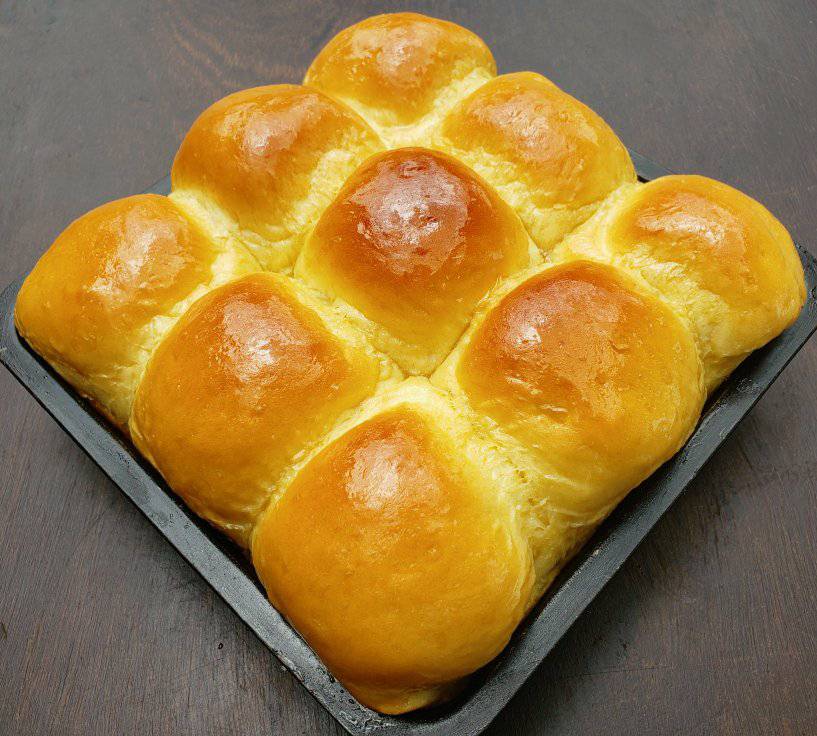- Activate the Yeast:
- In a large bowl, combine the warm milk and sugar, stirring until the sugar is dissolved.
- Sprinkle the yeast over the milk and let it sit for about 5-10 minutes until it becomes foamy. This indicates that the yeast is active and ready to use.
- Mix the Dough:
- To the yeast mixture, add the melted butter and beaten egg, mixing well.
- Combine the flour and salt, then gradually add to the liquid ingredients, stirring until a dough begins to form.
- Knead the Dough:
- Turn the dough out onto a floured surface and knead for about 8-10 minutes until smooth and elastic. Add a little more flour if the dough is too sticky.
- Place the kneaded dough in a greased bowl, turning it once to grease the top. Cover with a clean kitchen towel and let it rise in a warm place until doubled in size, about 1-1.5 hours.
- Shape the Rolls:
- Punch down the risen dough and turn it out onto a lightly floured surface.
- Divide the dough into 12 equal pieces. Shape each piece into a smooth ball by pulling the dough underneath itself.
- Arrange the shaped rolls in a greased 9×13 inch baking dish or on a baking sheet, leaving some space between them for expansion.
- Second Rise:
- Cover the shaped rolls with a kitchen towel and let them rise again until nearly doubled in size, about 30-45 minutes.
- Preheat the Oven:
- Preheat your oven to 375°F (190°C) during the second rise.
- Bake the Rolls:
- Once the rolls have risen, brush the tops gently with melted butter.
- Bake in the preheated oven for about 15-20 minutes, or until golden brown.
- Serve:
- Remove the rolls from the oven, and if desired, brush with additional melted butter for a soft, flavorful crust.
- Serve warm for the best experience.
Tips for Perfect Dinner Rolls:
- Temperature of Ingredients: Make sure that your milk is warm, not hot; too high a temperature can kill the yeast.
- Proofing: Ensure that your kitchen is warm enough to support the dough rising. If it’s too cold, the dough may take longer to rise.
- Freshness of Yeast: Check the expiration date on your yeast to make sure it’s fresh. Old yeast might not activate properly, affecting the rise of your dough.
These homemade dinner rolls are not only satisfying to make but also a pleasure to serve, bringing a touch of homemade warmth to any meal. Enjoy baking and sharing them!
